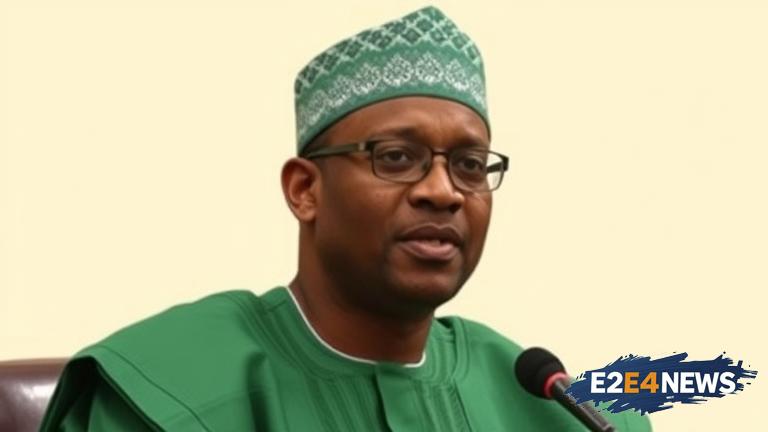The son-in-law of former Nigerian Vice President Atiku Abubakar, Abdullahi Babalele, has spoken out against allegations of money laundering, stating that he is not on the run from the Economic and Financial Crimes Commission (EFCC). Babalele, who is married to Atiku’s daughter, Fatima, claimed that he has been cooperating with the EFCC and has provided all necessary documents and information to clear his name. The EFCC had allegedly accused Babalele of laundering millions of naira, which he denied, stating that the allegations were politically motivated. Babalele’s lawyers have also released a statement, saying that their client has done nothing wrong and is willing to cooperate with the EFCC to prove his innocence. The EFCC has been investigating Babalele for several months, and his case has sparked controversy and debate in Nigeria. Many have questioned the timing of the allegations, which came just before the 2023 presidential election, in which Atiku Abubakar was a candidate. Atiku’s supporters have accused the EFCC of being biased and trying to discredit their candidate. The EFCC has denied these allegations, stating that they are simply doing their job and following the law. Babalele’s case has also raised concerns about the use of the EFCC as a political tool to silence opponents. The Nigerian government has been accused of using the EFCC to target opposition figures and their families. The EFCC has a history of being used as a political tool, and many have questioned its independence and impartiality. Despite these concerns, the EFCC has maintained that it is committed to fighting corruption and will continue to investigate and prosecute anyone suspected of wrongdoing. Babalele’s case is ongoing, and it remains to be seen how it will be resolved. The outcome of the case could have significant implications for Atiku Abubakar and his family, as well as for the EFCC and its reputation. The case has also sparked a wider debate about corruption and the rule of law in Nigeria. Many have called for greater transparency and accountability in the EFCC and the Nigerian government, and for an end to the use of the EFCC as a political tool. The international community has also been watching the case closely, with many expressing concerns about the state of democracy and human rights in Nigeria. The Nigerian government has faced criticism for its handling of the case, with many accusing it of trying to silence opposition figures and their families. The case has also raised concerns about the independence of the judiciary and the ability of the EFCC to operate impartially. Despite these challenges, the EFCC has maintained that it is committed to fighting corruption and will continue to investigate and prosecute anyone suspected of wrongdoing. The case is a complex one, with many different factors at play. It remains to be seen how it will be resolved, but one thing is certain: the outcome will have significant implications for Nigeria and its people. The case has also highlighted the need for greater transparency and accountability in government and the EFCC. Many have called for reforms to be implemented to prevent the EFCC from being used as a political tool. The international community has also been calling for greater transparency and accountability in Nigeria, and for an end to the use of the EFCC as a political tool. The case is a reminder that corruption and the rule of law are complex issues that require careful consideration and attention. The Nigerian government and the EFCC must work to ensure that the rule of law is upheld and that corruption is tackled in a fair and transparent manner.




